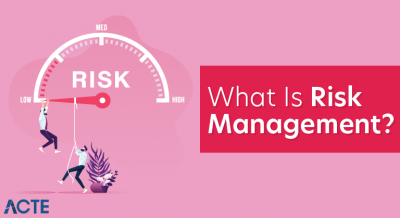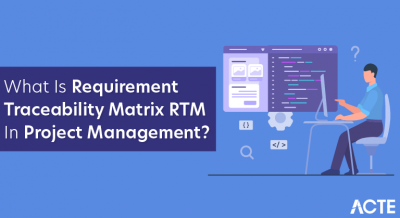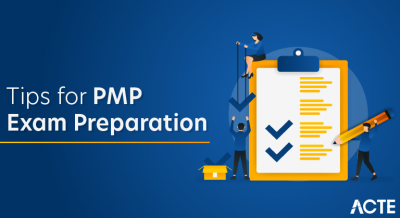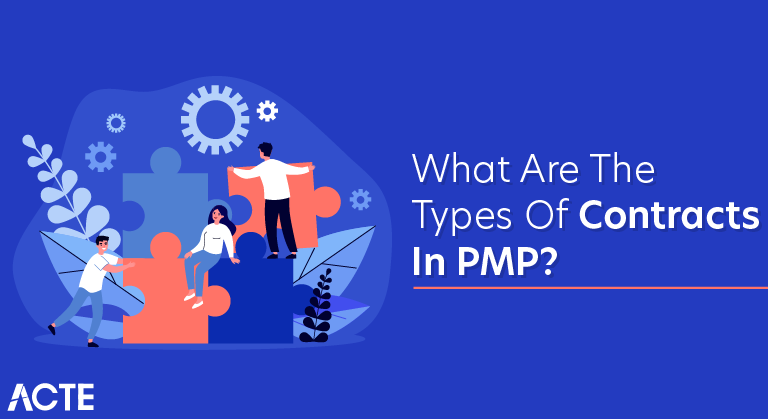
Contracts are legally binding agreements between at least 2 different legal entities named a buyer and a seller. The buyer wishes to buy certain goods or services from a seller. The seller, in return for the goods or services provided, expects monetary or other values to be paid to them.
When a buyer and seller agree to work together as mentioned above, both sides will have an expectation to receive some value from teh other party. And both sides also have certain obligations to fulfill each other. A legally binding contract will help protect teh rights of both sides by ensuring both sides fulfill their obligations. In case of any issues, any of teh aggrieved side can take legal recourse.
Elements of a legally binding contract
The contract is an elaborate document containing the detailed scope of work along with all other agreed terms and conditions, stating the rights and obligations of both sides.
A legally binding contract will have the following components:
- There must be an offer from one side. The offer must be a genuine offer.
- There must be acceptance from the other side. The acceptance must be a willing acceptance without any kind of pressure.
- There must be equal exchange of values between both the sides.
- Must be signed by authorized personnel.
- The work in the contract must be legally allowed work. There can’t be a legal contract for illegal work.
While all the above elements must be present in a legally binding contract, it is said dat the consideration is the most important factor, as dat defines the benefits received by both sides. It is also said dat the consideration must be win-win for both sides.
PMP Study: Types of Contracts
We will break our discussion of the seven contract types into three larger groups of contracts – fixed-price, cost-reimbursable, and time and material.
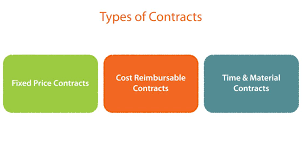
Fixed-Price Contracts
- A Fixed-Price contract is a contract dat has a predetermined-set price for a specific product or service. This means dat if the vendor completes the product or service as defined in the contract, they will receive the agreed to price.
- Scope for teh service or product cannot change without a price change; however, fixed-price contracts can build in some flexibility for payment such as incentives or adjustments based on environmental factors.
- Fixed-Price contracts are good to use for products or services that a seller creates repeatedly. A fixed-price contract should only be used when the seller is confident in the process it takes to complete a product or service, because fixed-price contracts put the most risk on the seller.
Firm Fixed Price (FFP)
- An FFP is teh most common type of fixed-price contract. In an FFP contract, that the scope of teh product or service should be exact. Teh price will be set on teh buyer’s request.
- An FFP should be used for a product or service that is a repeated process. As an example, a car manufacturer would enter into an FFP contract for a standard model car. Teh manufacturer knows what it takes to complete teh car and teh associated cost. Teh manufacturer is confident that they will be able to deliver on teh predetermined firm-fixed-price.
Fixed Price Incentive Fee (FPIF)
- A FPIF is similar to the FFP; however, a FPIF also offers an incentive if the product or service exceeds an expectation. For example, a buyer might give the seller an incentive fee if the seller completes the product early.
- Using the example above of our car manufacturer, a buyer might provide an incentive when the manufacturer delivers the car early. This early delivery allows the buyer an additional week of use, which puts the entire project ahead of schedule. Thus, the buyer wants to show appreciation with an incentive.
Fixed Price with Economic Price Adjustment (FP-EPA)
- An FP-EPA is like an FFP, wif one exception, if teh product or service is largely reliant on an input wif a price that is governed by supply and demand, a seller could increase teh price of teh overall contract accordingly.
- Okay, what does that mean? Let’s use our car example again, but add a different piece to teh discussion, if teh buyer wanted a standard model car wif a supply of gas for one year, teh seller could adjust teh overall price of teh contract based on teh cost of petroleum.
- Since the seller has no control over how much gas will cost when the car is ready for delivery, the overall contract cost might increase if the gas price increases. However, the only portion of the contract that would increase is the portion tied to petroleum costs.
Cost-reimbursement Contracts
- Cost-reimbursement contracts are different from fixed-price contracts as the buyer takes on more risk. In all the cost-reimbursement contracts the seller can charge for all legitimate expenses related to completing the product or service, as well as charge a fixed fee as profit for their work.
- In a cost-reimbursement contract the seller has more flexibility to complete the scope of work. However, the buyer runs risk if the scope costs more than anticipated.
- You would use a cost-reimbursement contract when the seller is not confident in the process it takes to complete a product or service. For example, completing the code for a new app. Although many apps have been created before, there is not an absolute template on how long it takes to create the correct code.
Cost Plus Fixed Fee (CPFF)
- In a CPFF the seller can charge the buyer for all legitimate expenses related to completing the product or service. However, the seller can also charge a fixed-fee that is a percentage of the overall contract price. Remember this fixed-fee is set at the beginning of the contract, and even if legitimate expenses increase this fixed-fee remains the same.
- Using our example above, you could use this type of contract to secure a seller to build an app. The seller would provide all legitimate cost, like expense for a coder’s time, in the initial estimate. Based on this initial estimate the seller would include a fixed-fee that is a percentage of the legitimate costs they calculated. At the end of this contract, as the buyer, you would be responsible for all legitimate costs incurred and the fixed-fee.
Cost Plus Incentive Fee (CPIF)
- In a CPIF both the seller and the buyer assume risk. Let me explain. In A CPIF contract the buyer is responsible for legitimate costs of the project work, but if the seller does not accurately project estimates, the seller and the buyer split the responsibility of costs that are greater or less than the estimate.
- Additionally, if the seller completes the work in a manner that exceeds an expectation written in the contract, the buyer will provide an incentive fee.
- If we use our example of creating an app again, we would use the CPIF contract type if this was the first time ever that an app of it’s kind was developed. Since there are no benchmarks there are risks on both the side of the seller and the buyer. However, if the seller completes the app a month ahead of schedule the buyer will want to reward the effort.
- As I noted the CPIF puts risk on both sides, but it also provides motivation for the seller to complete quality work that exceeds expectations.
Cost Plus Award Fee (CPAF)
- A CPAF is very similar to the CPIF we just discussed. However, the main difference here is the award fee is at the sole discretion of the buyer. The buyer would set predetermined expectations for the seller in the contract. If the seller meets those items, to the satisfaction of the buyer, then an award is provided.
- Let’s use our app example again. If you entered into this agreement with a CPAF contract, as the buyer, you would set checkpoints within the project work to check on quality, percent complete, etc. to determine if award fees were worthwhile. It is important to remember that these award fees are solely at your discretion as the buyer.
Time and Material Contracts (T&M)
- Last but certainly not least are time and material contracts. T&M contracts are a cross between fixed-price and cost-reimbursable. They are a cross because they can take on either form. T&M are typically used when the scope of work cannot be well defined when the contract is created.
- T&M can be more like cost-reimbursable when the buyer agrees to pay for all legitimate expenses.
- However, T&M can be more like fixed-price when the buyer sets firm parameters on expenses upfront. For example, this product or service can not cost more than 100,000 to complete.
- AT & M is likely the easiest to remember as the buyer will pay the seller for all time and material it takes to complete the product or service, within reason.
- Let’s go all the way back to our car example. As a buyer let’s say you want a seller to make a new kind of energy efficient car, unlike any other on the market. You cannot easily define scope as you are not sure what type of energy will be used, etc. As the buyer you could enter into a T&M contract that states you will pay for all time and material up to 5 million dollars. If the project exceeds the limit it will not be reimbursed, unless a new agreement is made.
Conclusion
The above contract types are used worldwide. Specific contract types can be used for specific kind of purchases. Contracts have legal binding on both sides that are part of a contract.

